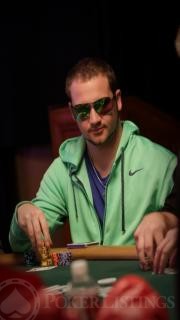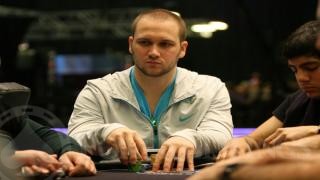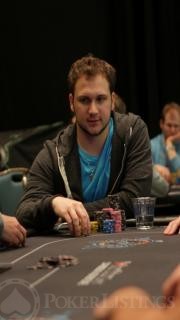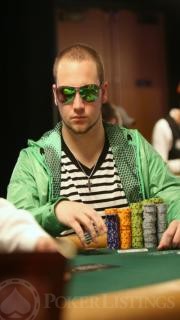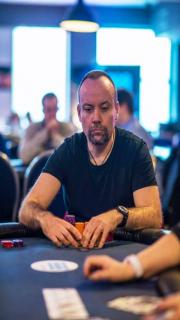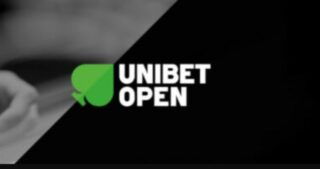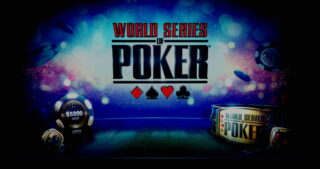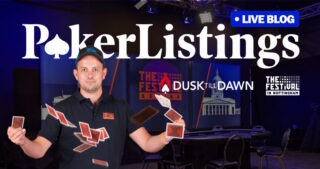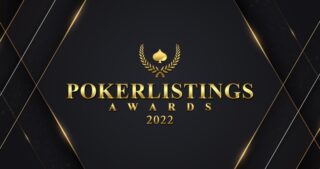When I originally approached Calvin Anderson to analyze some hands I played at the €220 buy-in 888Live Local in Dublin, I had 14 of them.
After talking through the first hand I realized there was no way I was going to get through them all.
Anderson doesn’t operate that way. There is never a right or a wrong answer.
Instead he offers opinions, ask questions and suggests scenarios. I swear I could hear his brain whirring through the Internet cables.
I felt very grateful to be holding a conversation with one of the greatest poker players of his generation.
How to Talk Poker Hands
The conversation started well. Anderson was riding shotgun during a trip through Costa Rica. He showed me the view. It was better than the grey, damp city life that stared at me.
“I like the way you have formulated your hand histories,” said Anderson.
As it turns out Anderson is very particular about the way a hand history should be sent to him. He even has a rulebook.
If you don’t follow the rules, you don’t get heard. Fortunately, luck was on my side. I followed most of his rules. Here they are:
- You must have purpose
- All the facts must be present
- You should express your thought process and ask great questions
- Don’t brag
- Don’t bleat about a bad beat
The 888Live Local event in Dublin I played was a €220 buy-in (single re-entry).
Someone bought me into the event. I didn’t want to re-enter. I was skint. I decided to play Day 1A. This gave me the opportunity to go into debt on Day 1B should I bust.
The starting stack was 25,000 chips. The blinds increased every 30 minutes.
Hand #1 - Blinds 25/50
I opened to 150 under the gun holding pocket eights and get four callers. The flop is J53cc.
I c-bet 350 and there is one caller in position. The turn is the 4h. I decide to check-fold, believing there are too many jacks in his range.
The Question
This is a pretty standard hand that comes up a lot. At the time, when facing four players, I feel like one of them must have a jack but it feels so wrong to simply fold pocket eights on the flop.
This is why I bet, but should I check-fold?
Calvin Anderson: The outcome of a hand, when playing this deep, isn’t that big of a deal. This is one of the reasons that it’s a good idea to be on time and play in the early rounds of an event.
It’s a great way to shake those mistakes out of you and get a feel for the other players without hurting your stack.
You do need to pay attention to how many people are in the hand. You also need to have formed some sort of calling range.
There is a good chance that someone has a jack in this spot but betting isn’t a bad idea. Always try to have a long-term plan: pre-flop through to river.
Once you bet the flop your next response depends on how many people call or if anyone raises. If one person would have called I would have check-called the turn.
If you would have got two callers I would have check-folded because one of them definitely has a jack. When the one player calls I would get a read on the guy. Is he capable of floating? Is he an active and aggressive player - someone who is stubborn?
If so I may not fold to him but if he is an older, more straightforward guy, I would fold. Then if the river wasn’t a club, or another four, I would probably check-call again.
In a low buy-in tournament like this he is probably not good enough to bet a jack again so I would guess he was bluffing.
Related Reading:
LD: When four people call, I give up. I assume one of them must have a jack and if called on the flop I am done with the hand.
CA: In this low of a buy-in, and with four people in the hand, I kind of agree with you.
The reasons why you bet are to protect your hand from over cards and straight draws and to get value from weaker hands.
If you check it’s because you think they either have the best hand, you're inducing them to bluff or you're giving up.
It’s important to understand why you're making every action.
Related Reading:
LD: I have this ‘rules’ type of mentality. I learned to play online cash games by using starting hand charts. I know that’s hurt my ability to improve as a poker player. Even now there are hands that I will open from certain positions, irrelevant of the dynamics of the table. I see a pocket pair and I open with a raise.
CA: You make a good observation. Raising our awareness of whether a play is good or bad is a good thing.
Opening pocket fours under the gun is not necessarily a great play, but understanding that it’s not a great play allows you to play it because you can get away from the hand.
But if you are opening it every time, and think it’s the right play, then that’s a fundamental mistake.
LD: It’s the same when I have pocket pairs. When I played online cash games I would lose a ton of money with these hands. I learned to set-mine only. If I didn’t flop my set I was done with the hand unless I had flopped a straight draw, for example, or had 77 through TT on a low board.
CA: People have a hard time transitioning from cash games to tournaments. I’m not an amazing cash-game player. I don’t really play pocket pairs to set mine that often.
It’s the right play to do it whenever you are above a set number of big blinds - like 60-70bb+. In this hand, at this blind level, when you raise you're effectively set mining with the eights.
But having cash-game experience is important. You can break tournaments down into three phases:
- The early phase suits the cash-game player
- the middle phase suits the tournament player and
- the latter stages suit the Sit 'n Go player
I’m not the best at any of those disciplines but I don’t do too bad when you combine them all.
Related Reading:
Hand #2 - Blinds 25/50
A player opens to 350 and I call with pocket tens from the small blind. The flop is AQTcc.
I check-call a 350 c-bet. The turn is the
The Question
Given villain’s likely range should I have raised for value on the flop? I played a hand similar to this during the World Series. I got it in on the flop and my opponent had the nuts.
I don’t play a lot of tournaments so these instances are fresh in my mind. This definitely influenced my play and this happens a lot.
I know this isn’t the right way to approach the game, but it happens so quickly.
Calvin Anderson: This is a big problem that a lot of people have. Emotion is very powerful. People remember highly emotive situations - positive or negative.
This is why a lot of people have problems related to highly emotional incidents that happened when they were younger, and then it effects them in later life.
This happened to you at the WSOP. Back then you flopped a set and, in a rare occurrence, you lost to a better hand.
You knew you played the hand the right way, you lost, but it still affected you emotionally because you were knocked out of an event that you rarely play in.
There is no reason for you to be disappointed afterwards. When I play a poker tournament, and I am absolutely positive that I didn’t do anything wrong, I don’t worry about it.
But you need to be certain that you didn’t do anything wrong. If you don’t positively know that, then ask.
If I make a mistake, I get mad. But I don’t remain in that state for long. I turn my attention to figuring out what I did wrong so I can make a better decision in the future.
Related Reading:
LD: But should I have raised the flop?
CA: There isn’t a correct play. Either play might be fine. I’m not going to give you a right or wrong answer.
I’m going to give you reasons why it could be right or wrong; that’s poker. It could be right 80% of the time and wrong 20% of the time.
In this situation it’s right to raise 80-90% of the time and not to 10-20% of the time.
The reasons you raise are to gain value from hands like AK, AJ, AT, AQ, J9 and QT. You lose to QQ, KJ and AA.
That’s how you work out the right play and so in this instance, without any other information, it seems raising would be a good play.
Me: When the jack hits on the turn should I have bet-folded?
CA: I wouldn’t bet-fold. You have a lot of equity. Let’s say he does have a king. You can still hit quads or a boat. You can bet-call. The odds of him raising you with a king are small and you can still make your hand. I wouldn’t fold a hand with this much equity.
Related Reading:
Hand #8 - Blinds 1000/2000 A300
I was eliminated on Day 1A through a cooler. The following hand is taken from Day 1B, when I re-entered.
I have 40bb at the start of the hand. There is an open to 4,300 from a 60bb stack, in mid position, and I call with 89dd in the hijack.
A weak player, who has the table covered, three-bets to 16,000 in the cutoff. Andy Black, who also has in excess of 100bb, calls from the button. The original raiser folds and I call.
The flop is T84r and both Andy Black and I fold when the original three-bettor moves all-in when checked to.
The Question
After the weak player three-bet and the action folded around to me I knew that the instinctual play was to fold. I decided to call for the following reasons.
I had a hand that flops well against two players with stacks in excess of mine. I don’t play tournaments that frequently. This changes my approach to the game.
Instead of playing ‘optimally’ I take chances. I do this because I am not a favorite in the game and therefore my best chance of winning is to take a chance like this to gain a large stack that gives me more maneuverability.
Had I lost the hand I was comfortable playing with a 20-25bb stack. Is this approach ok?
Calvin Anderson:If you wanted to work out the correct math then you can use a program called Flopzilla to help you with that. As played, you have to attempt to put the original raiser on a range. Then thinking about relative position is also very important.
Whoever made the big three-bet is going to act first. That guy is going to bet, then dependent on who goes next, leads to your involvement in the hand. The guy who re-raised; if Andy is acting after him, and then it’s you, then you can be in the hand. You are going to be squeezed between two guys.
It may be fine for you to get into this hand as long as you understand this. It also depends how much equity you will flop. When you flop a nine on a T96 board, you don’t know whether to go with it or not.
This guy is going to bet big, Andy Black is still there to act next and so you need a very strong hand. What’s going to happen, a lot, is you are going to miss the flop. Or you will hit but not very hard.
Imagine playing a pair of 2s. You always know if you are going to go with it or not. Figuring out what you are going to do when you hit boards like this is important.
Related Reading:
LD: I knew what I was doing. I was moving all in with any draw or folding.
CA: I think that’s fine. Knowing that you want to gamble in this spot is ok. Knowing you are not the best player in the field, and you are not experienced enough to small-ball and grind it out, makes a huge difference to your approach.
Taking the chance to get a lot of chips is fine. I do this a lot, early in tournaments, to get a big stack.
I think more people should know where they are in terms of their level of ability in a particular tournament and take risks accordingly.
But you need to understand the quality of the hands you select and make sure you have good equity when making these decisions.
